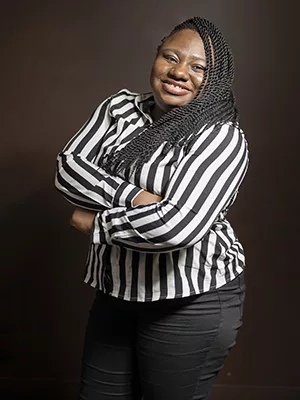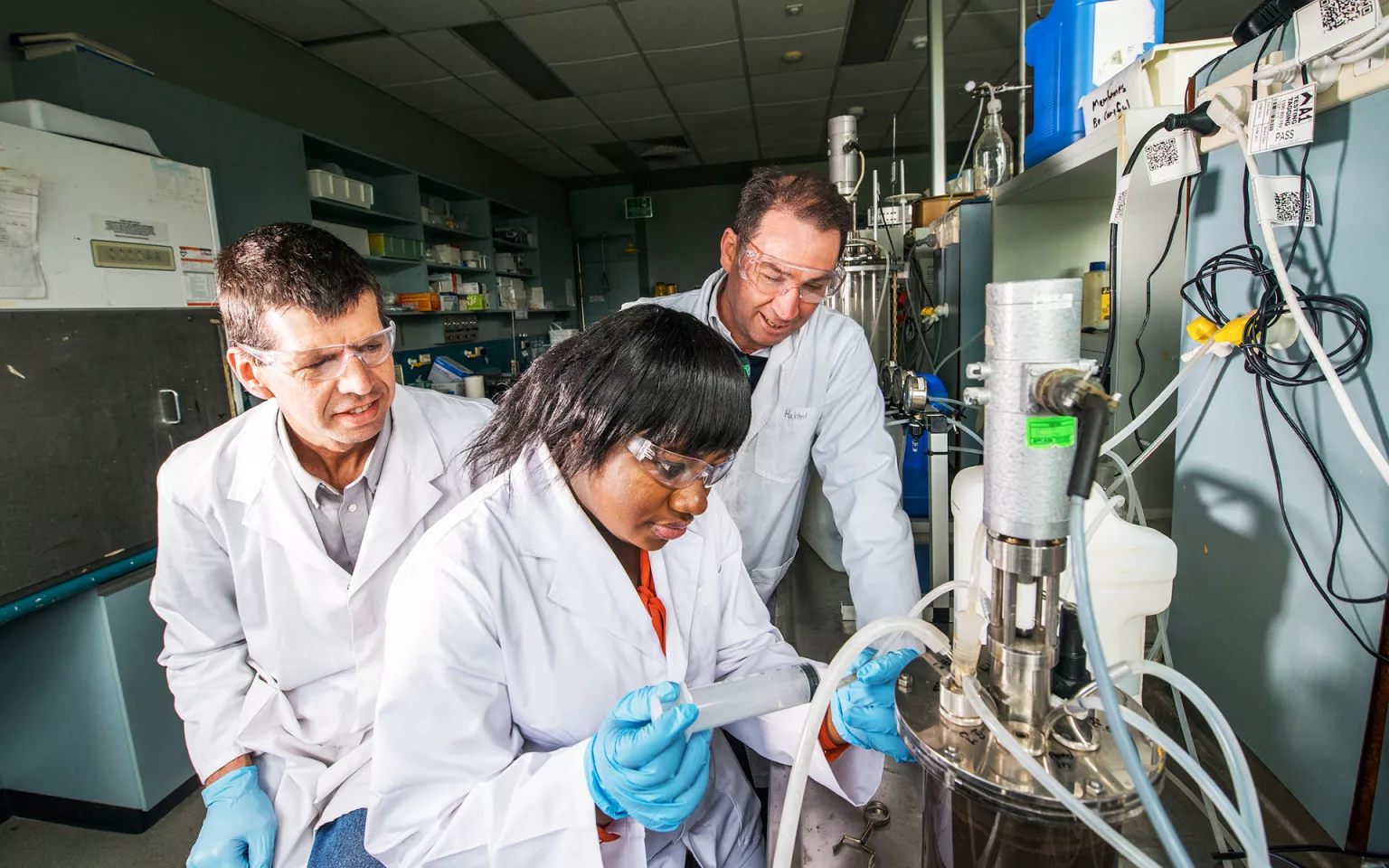Dr Morley Muse is a Chemical, Environmental and Renewable Energy Engineer, a Board Director of Women in STEMM Australia and co-Founder of iSTEM.Co. She discusses shaking up an industry for the benefit of CALD women in STEM across the nation.
Q&A WITH DR MORLEY MUSE
What inspired you to become an advocate for women from diverse backgrounds within STEM?
Dr Morley Muse (MM): As a woman from a minority background working in STEM, I have faced personal and professional challenges whilst in pursuit of my career aspirations. As a scientist, engineer and passionate advocate for women in the field, I have advocated and worked across various STEM/NFP organisations to create change.
My leadership journey in advocating for the diversity of women in the industry began during my PhD, when I realised the difficulties of being a woman in a male-dominated field. The underrepresentation of female engineering students led me to co-found the Women in Science and Engineering (WISE) Club at Victoria University to empower and support female STEM students and encourage girls to pursue STEM careers.
Driven by my passion, I began engagements with Women in STEMM Australia (WISA), in 2018 and was appointed to the board as a director in 2019 which I still serve to date. WISA has created a diverse, inclusive network of STEMM professionals at all levels of academia, industry, education, business and government and includes all women in STEMM regardless of their discipline and profession.
Through my work with WISE and WISA, I gained a deeper understanding of the barriers women in STEM face, such as gender stereotypes, lack of flexible employment, harassment, caring responsibilities, and recruitment bias. I also realised that the conversations about gender equity often exclude the intersections of gender like race, ethnicity, and disability. I found alarming statistics from Australia’s STEM Workforce Report by the Office of the Chief Scientist (2020), that showed only 29 percent of the STEM workforce identifies as women and 56 percent of university-educated women in STEM were born overseas but experienced four times higher unemployment rates. To address the issue, I partnered with Dr Ruwangi Fernando to co-found iSTEM Co, which aims to promote employment and retention for women in STEM, including women of colour and women from culturally and linguistically diverse (CALD) backgrounds.

“Conversations about gender equity often exclude the intersections of gender like race, ethnicity, and disability”
Dr Morley Muse, co-Founder and Director, iSTEM Co.
Why is it so important that conversations surrounding women in STEM go beyond gender equity to explore the intersections of gender, particularly for CALD women?
MM: The discussion around diversity and inclusion has increased in recent times yet the dial has barely shifted for women in STEM, particularly for women of colour and women from CALD backgrounds. In Australia, it’s been identified that there are more than 200,000 vacant STEM jobs, which has continued to grow by more than 2.5 percent annually since 2019 and the demand for STEM workers will increase to 1.9 million by 2024. This shows how critical the sector is for our economic growth and global competition.
Whilst the focus on increasing the number of women studying STEM is great, especially with initiatives like the Elevate women in STEM programme by the Australian Academy of Technological Sciences and Engineering, it is equally important to create employment opportunities where these women can apply their learning in real-life environments. They say “you can’t be what you can’t see”.
Having women in STEM workplaces should not only be seen as a good social cause, but also as an economic one. Research shows that the Australian economy will improve by AUD$25 billion if more women are supported into work.
Businesses are pushing hard for diversity without proper spaces of inclusion, which will eventually lead to high attrition rates and lack of retention. For us to meet the STEM skills shortage that we currently face, all hands must be on deck. Hence, the necessity of having women from all backgrounds, regardless of race, ethnicity, or disability, contribute their skills to the STEM sector.
How does iSTEM Co. encourage a sustainable, diverse and inclusive way of working in STEM?
MM: Gender bias is a massive contributor to the issues women face in trying to secure a STEM job. iSTEM Co. is a company addressing this issue and was founded out of our own personal struggles and challenges with gaining employment. It is a research, consulting and talent-sourcing company that enables the employment and retention of women in STEM including women of colour and women from CALD backgrounds.
Considering the current demand for more STEM-skilled workers in Australia, iSTEM Co. is well-positioned to address the unemployment and under-employment of women in STEM from an expert and lived experience perspective. This is the core of our mission at iSTEM Co., to create a safe and inclusive recruitment process and enable employment of all women in STEM.
As part of our efforts to improve employment of women in STEM, we are now transitioning to a recruitment-tech platform, DEIR (Diversity, Equity, Inclusion, and Retention), which is a subscription-based platform, aimed at providing women in STEM with job opportunities in a safe and inclusive environment.
Previously, STEM employers have cited insufficient applications from women including women of colour and CALD women for the lack of diversity in their workplaces. On the other hand, female candidates have cited recruitment bias from their names, career gap, and parenting. For women of colour, the discrimination even extends to their accent, country of origin, ethnicity and cultural identity. We decided to solve the puzzle by creating an inclusive and equitable platform where employers can post jobs and candidates can search for work.
DEIR is set to eliminate recruitment bias women face through its unique features, including anonymous recruitment, job benchmark, ethical job posting, standardised interview process, mentoring retention programme, and an endorsement badge for ethical and inclusive employers. DEIR is already gaining attention and is the winner of the 2022 Lift women awards under the social impact category. It will be launched in March to celebrate International Womens Day. We are also seeking angel or seed investment funding to build and develop DEIR and welcome any interested parties to contact us directly at [email protected] or via LinkedIn for further discussions. Stay tuned and follow our progress journey.




































